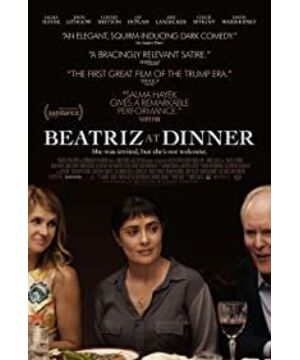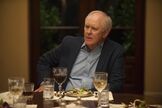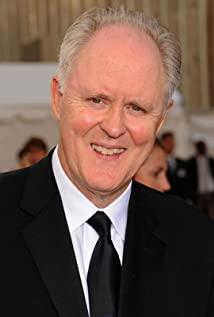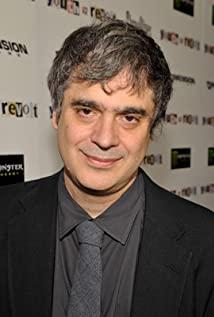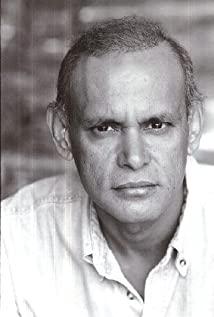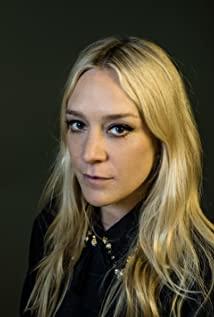Our spirits are equal. Just like you and I walked through the tomb, standing before God as equals!
——Charlotte Brontë's "Jane Eyre" ("Jane Eyre"),
through a dialogue between Jane and Rochester, leads to today's film theme (spiritual and death) and the critic "Beatriz at Dinner" (a highly ideological niche movie) .
"Beatriz at Dinner" (Beatriz at Dinner), a thoughtful and highly discussed movie starring the Latin goddess Salma Hayek.
The work tells the story of the Mexican-American masseur Beatriz who was forced to stay in the mansion of his client Kathy because his car broke down. He was "unwilling and unwilling" to attend a dinner for the rich.
The director took this dinner as the key point of the film. Through a series of dialogues between Beatriz and Doug, the opposite of the story was presented to the audience, which was thought-provoking. In the next time, combined with the plot of the film, I will talk about my personal views. (It's more scattered and complicated, please be patient and read slowly)
I. Belief (Beatriz vs. Doug)
What is Beatriz's belief?
Are you a Catholic? Because she had a "Maria Portrait" hanging on her car. Or a Buddhist? Because she often meditates, meditates, and there is a "Buddha statue" in the car. A person has two different religious beliefs? impossible! So what is the significance of these decorations? What is Beatriz's true belief? The following is my humble opinion. (For reference only)
The meaning of furnishings. “The portrait of the Virgin Mary” embodies “kindness” (for research, you can refer to the four gospels in the New Testament of the Bible); “meditation” represents “the peace of mind, the harmony between oneself and nature, and the relationship between the individual and the others. Harmony between the two" (If you are interested, you can refer to part of the "Heart Sutra"). Combining the two ingeniously, the final meaning is "love nature, care for others, and live in peace with everything in the world". (Maybe it is the "Harmony of Man and Nature" in Taoism) The
true belief. The belief that Beatriz upholds is not a narrow "religious sect", but a broad "fraternity", that is, the way of harmonious coexistence between man and nature and between people.
What is Doug's beliefs? It's money, it's grasping the present, it's the pride of this life! In the plot, whenever he mentions his wealth and past experiences, Doug is always full of joy and pride. The accumulation of money in the world makes him proud and confident. As a realist, he believes that money is the only reliable friend.
II. Ideal and reality (pay attention to the character Beatriz)
Living in the material world, there is a huge gap between personal lofty ideals and ugly reality. Just like the Beatriz in the play, living in a big city, but wholeheartedly wanting to live a life of returning to simplicity and peace in the world-taking in the homeless sheep (heart of compassion and love), meditation with incense (quiet soul) , Go to the rehabilitation center to help the patient (regulate the body and mind, release stress), be alone (not have too many intersections with others), her behavior trajectory just wants to seek inner peace in this complex world, is it possible?
It's impossible! An unexpected "wealthy dinner" caused Beatriz's "utopia" ideological trend to completely erupt. She did not approve of carnivore, did not accept the hunting movement of the rich, and did not approve of economic development at the expense of the environment. When she presented her core values with justice, she was exchanged for merciless ridicule. The impact of reality made her completely confused, so she chose to escape and disappear into the vast ocean. (The soul returns to his homeland)
III. Economic development and environmental protection (realistic meaning)
There are three tit-for-tat conversations in the film that are memorable.
In one part of the meal, Beatriz talked about a past 40 years ago-about Americans going to her hometown to build a hotel.
The other part is after the meal, Doug talked about hunting in Africa, Beatriz was filled with outrage and threw his mobile phone angrily.
The last paragraph is Beatriz's explosive inner monologue after playing and singing! (Everyone in the room is stunned)
The three dialogues in different scenarios mentioned environmental protection without exception, involving economic interests, and alluding to the environmental damage caused by economic development. But how should people choose?
In my opinion (personal humble opinion), economic development and environmental protection are originally a pair of contradictions. Although many people (bricks) now advocate that the two can develop in harmony, this is basically difficult to achieve, otherwise the US will not. So resisting the "Paris Agreement", the EU will not delay the update of carbon emission standards time and time again.
IV. The issue of racial discrimination (cannot be reconciled)
The topic of "race" is another focal point in the film. Although it is not long, it is enough to make everyone in front of the screen think about it for a long time.
1. The director's casting. The main characters in the works are all white people, but the protagonist of the story is people of color. What's the meaning? it goes without saying.
2. Conversations of rich wives. When they talked about "Gypsy psychics", the contempt in their eyes and the disgust in their mouths were eloquent and showed naked "white supremacy".
3. During the dinner, Doug continued to question with ethnic meaning (because Beatriz is an illegal immigrant). The pride of white Americans is clear.
V. The most lost person (Kathy)
The biggest contradiction in the film is Beatriz and Doug (you can see at a glance). They have different opinions, different backgrounds, and different beliefs. Every word of Beatriz is aimed at Doug, and Doug Every time he uttered it was aimed at Beatriz. In addition, there is another character in the story who is also involved in the vortex of contradictions, and that is Kathy, a lost good old man. How to understand?
Why do you say that she is a good old man?
First, she persuaded her husband Grant to allow Beatriz to stay and join the party;
second, she maintained Beatriz who "offended Doug with words" more than once;
finally, she wanted to give Beatriz some money to pay for the trailer.
All the above behaviors reflect Kathy's human nature-kindness, tolerance, and tolerance, commonly known as the "good old man".
But why did she say she was lost again?
Obviously, Beatriz didn't appreciate or understand everything she did. Imagine that when you do your best to accomplish something for a common friend, instead of getting grateful, you coldly say that you don't know her, what will your mood be like? Definitely frustrated and lost. People share this heart, and Kathy feels the same.
It really hurts Kathy, who looks helpless and at a loss with nothing to say. (So it's hard to be a good person!)
VI.
The scenes at the beginning of the film of Spirit and Death correspond with the images at the end of the film. The beginning of the film is Beatriz rowing a boat on a peaceful river as a child, and the end is an adult Beatriz boating in the embrace of nature. What are these two very similar scenes? The moral? Talk about three points and share.
1. "Rafting alone in a secluded tropical rainforest basin" implies a person's "inner peace" and "harmony with nature", which is exactly what Beatriz aspires and pursues in the film.
2. The opening scene is "Dreamland", which is obvious. So what is the final scene? "Dreamland" too? wrong! Beatriz has disappeared at the end of the sea (a set of scenes in the 73rd minute of the film), did she swim back to Mexico from the United States? Inferring from normal thinking, the hypothesis is not true, let alone at night. Therefore, my personal guess is that the final image should be "illusion", translated as "Beatriz of the soul returned to the hometown".
3. The spirit is not dead, but the body is dead. Beatriz's ending was sad. She consciously couldn't change the minds of everyone, so in the end, she used death to establish her own point of view. Although the director made such an arrangement, some viewers felt that it was too "explicit" (unacceptable), but from the side, isn't such an ending a reproduction of reality? !
Write at the end. I have written a lot of words, in a nutshell-this is a very rich film. In just 80 minutes, the director and screenwriter delivered a lot of controversial and contradictory topics and opinions to the audience, which is worthy of fun.
Director ★★★☆☆ (The information is too much, not refined enough, and the audience needs to refine it by themselves)
Actor ★★★★★ (The outstanding performance of Salma Hayek and John Lithgow is amazing)
Plot ★★★★☆ (Rhythm , Narration, drama conflict, and the final reversal are all at the upper-middle level.)
Visual effects★★★☆☆ (average)
sound effects★★★☆☆ (theme music, piano + cello combination is perfect. Other than that , Relatively plain)
Recommendation ★★★★☆ (Highly thoughtful, the type of work that film critics prefer)
More film reviews + recommendations are first published on the WeChat public account "Floyd and Helen's Journey Collection", thank you
View more about Beatriz at Dinner reviews


